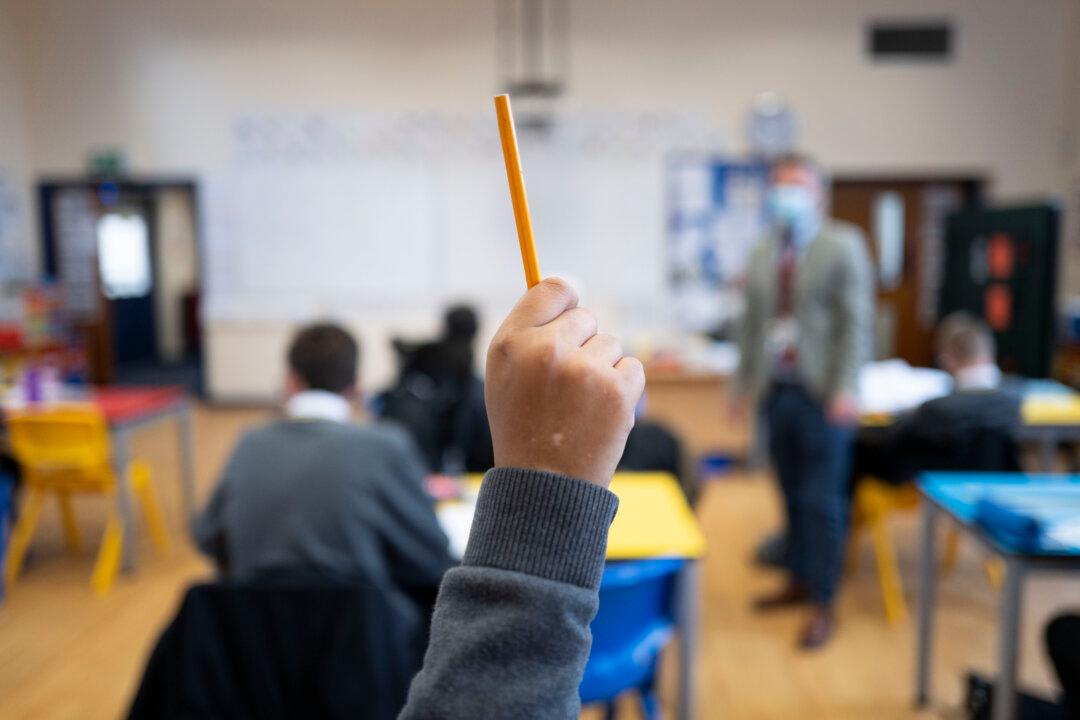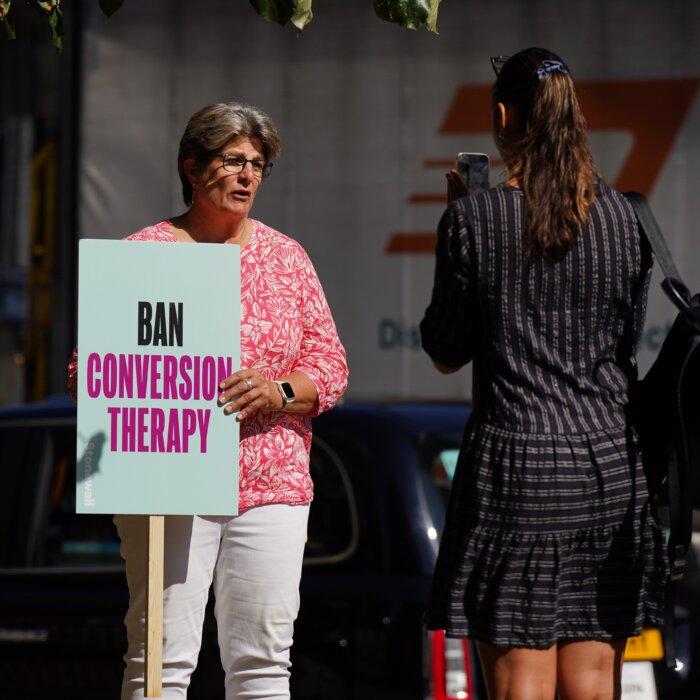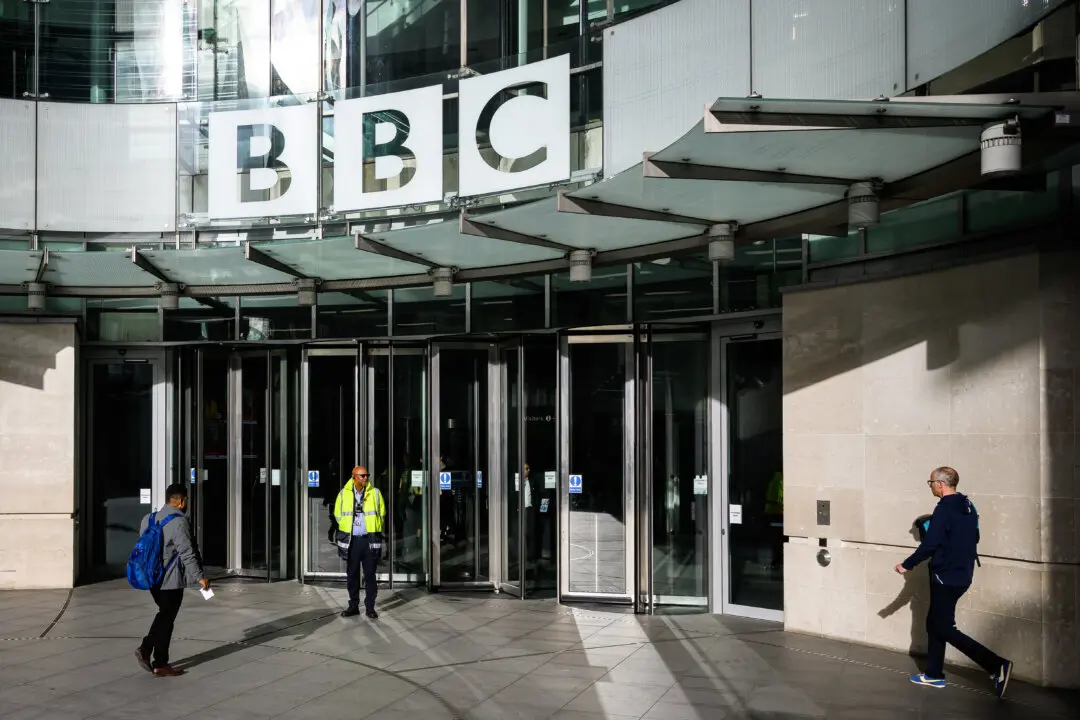Welsh schools are putting children “at risk” and exposing themselves to legal action by allowing children to identify as the opposite gender to their sex without informing their parents, research from a campaign group has found.
Merched Cymru submitted a series of Freedom of Information (FOI) requests to schools and found they had “widely varying approaches” in how they dealt with the increasing number of children who are questioning their gender identity, and were often using toolkits from transgender lobbying organisations such as Stonewall.
Their report revealed just 28 percent of schools that responded said they would automatically inform parents if their child wished to socially transition, whereas 38 percent said they would not automatically do so, and 29 percent said they would inform parents only with the consent of the child.
‘Hung Out to Dry’
In the report entitled “Hung Out to Dry: The Impact of the Welsh Government’s Inaction on Gender Distressed Children, their Families and Schools,” researchers found more than three-quarters of schools (76 percent) suggest that other pupils should address gender-questioning children with their preferred pronouns.More than half of the schools allow students to participate in sports and use changing rooms according to their gender identity instead of their biological sex, putting girls at risk of physical harm and compromising their privacy, while 70 percent either offer a gender neutral toilet or have all unisex toilets.
The authors said the report is based on a representative sample of schools across Wales as well as one-to-one interviews with parents, teachers, and other school staff.
Merched Cymru—which translates as Welsh Daughter—said: “Schools in Wales urgently need clear, legally compliant guidance from the Welsh Government on making decisions regarding gender distressed or questioning pupils.”
‘Compelled Speech’
The report found approaches including “forced or coerced speech” by other pupils in making them affirm the identity of a classmate, and failing to give any consideration of why a child is gender questioning. For example, they may have concurrent mental health conditions or could be on the autistic spectrum, or may be suffering from problems at home and seeking attention.The authors found schools were failing to facilitate access to more “holistic” support, and were too often affirming the child’s stated identity instead of questioning it.
One unnamed parent told the authors: “[Our child’s] school referred us to social services three times now because we’re not affirming our daughter’s trans identity. It’s caused a huge rift in our family.”
Another parent said: “[My daughter] was their first non-binary student and there were no guidelines at all at that time. Everyone wanted to support her and that meant just going along with everything.”
Teachers also expressed their frustration, with one telling the authors: “The one thing you’re not allowed to do is sit these kids down and ask ‘why’, because that makes you transphobic. Anything but ‘yes, that’s great’ is assumed to be just like homophobia.”

‘Sudden Upswing’ After Lockdowns
A teacher named only as “Rose,” who left the profession in 2022, told the authors she believed that transgender ideology was a social contagion, which notably exploded during the COVID-19 lockdown periods, with children spending far more time online.“When we returned [after lockdown], there was a sudden upswing in girls declaring alternative gender identities. At one point one or two students a week were requesting a change. I had four trans-identifying students in my tutor group of 14 (so half the girls) ... Some parents wanted to go along with it, thinking it was the best thing for their child’s terrible mental health and they wanted to help. At least one really seemed held hostage by it, with a child talking about suicide and self harm. Others said no initially and granted permission later.”
“It was clearly happening within specific friendship groups. It would usually start with the lesbians, already quite gender non-conforming, who would come out as trans boys. For example in a same sex couple, one would become a trans boy, and then the other one would too.”
The UK government last year issued new guidelines for English schools, stating there should be no presumptive right for children to “transition” or demand the use of “preferred pronouns.” The Department for Education said that parents should always be informed of any such request from their child, except where this might pose a serious safeguarding risk.
Potential Clash Between Westminster and Senedd
The UK government has previously intervened in Scotland after former First Minister Nicola Sturgeon attempted to allow children as young as 16 to legally change their gender, ruling this was in breach of the Equality Act.Vaughan Gething, who will take over from Mark Drakeford as the Welsh first minister this week, having won the election to become leader of Welsh Labour, has previously vowed to make Wales “the most LGBT friendly nation in Europe.”
Mr. Gething has pledged support for the controversial relationship and sex education policy of the Welsh administration, which has come under criticism from parents for its mission to promote “an awareness of how positive and negative social and cultural norms regarding sex, gender, and sexuality influence relationships and behaviours.”
Leader of the Welsh Conservatives, Andrew Davies, said of the Merched Cymru report on social media platform X: “Welsh parents will be rightly horrified by this. The new First Minister Vaughan Gething must take urgent action to safeguard pupils’ wellbeing. Ideology must not come into it.”
A Welsh Government spokesman said in a statement: “We agree this is an area that needs national guidance. That is why we are developing guidance for schools in Wales so that staff can ensure all young people are fully included in education and have a positive experience at school.”
“We will be holding a full public consultation on our draft trans guidance over the coming months.”
Merched Cymru said: “Welsh Government must publish draft guidance that is in accordance with extant law and not political aspirations.
“The consultation process must be transparent and meaningful, with a genuine openness to considering the views of individuals and organisations beyond the usual stakeholder groups. All responses should be published in full.”
“Local authorities must take responsibility for developing policies for schools in their area and ensuring that they are fully compliant with relevant legislation, do not breach schools’ duties of political impartiality, and offer children and young people struggling with issues of gender identity the same level of safeguarding from harm as their peers.”







